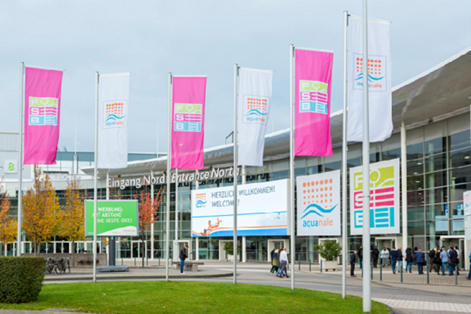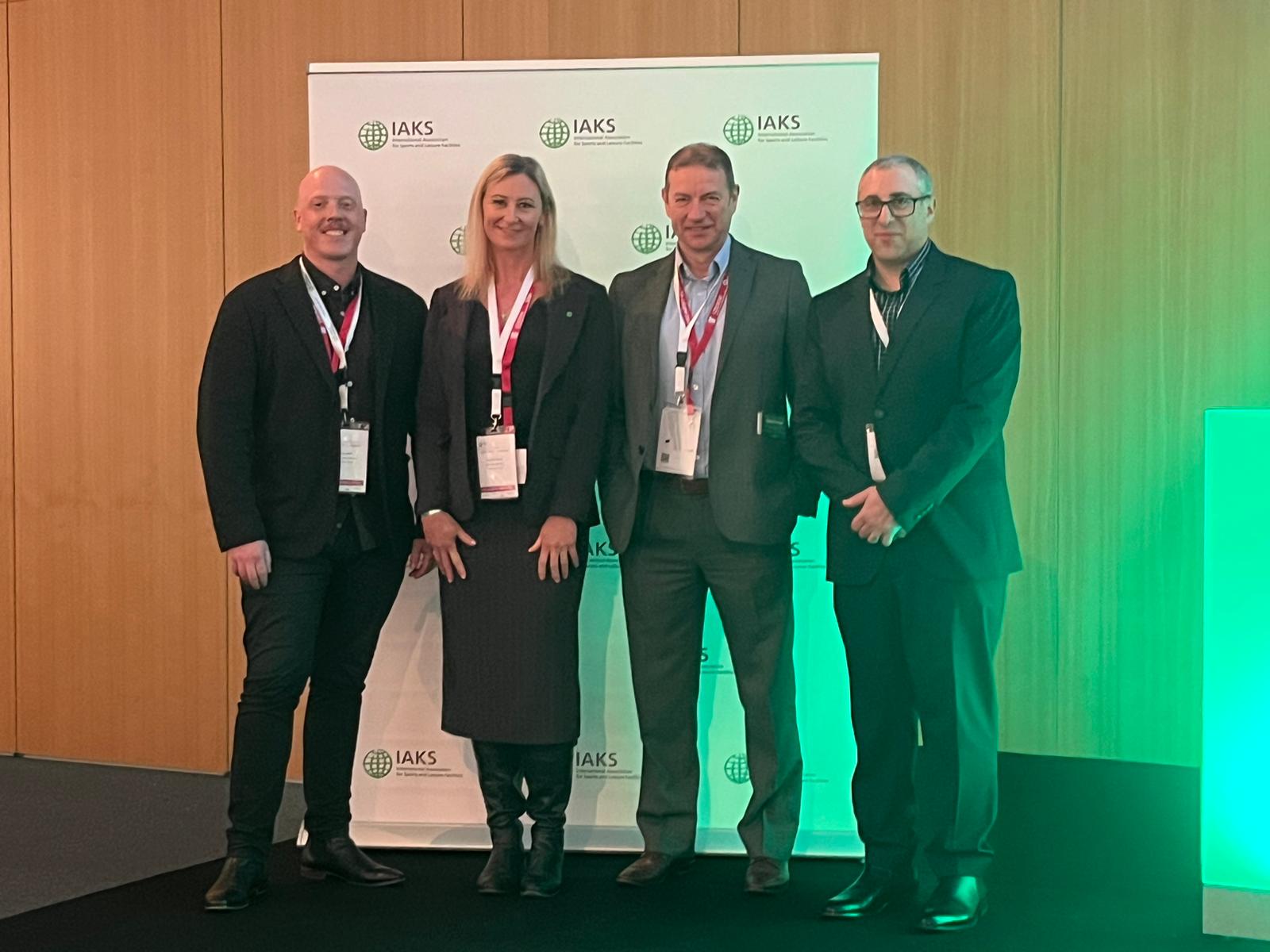Published: 2/11/2023

GLOBAL LESSONS IN SUSTAINABLE AND INCLUSIVE AQUATIC AND LEISURE FACILITIES
Last week's biennial International Trade Fairs (FSB) and IAKS International Congress in Cologne, Germany, provided a global stage for high level dialogue on how sport and leisure industries can advance healthier, safer, and more sustainable communities. The event served as an exchange hub for representatives from 123 countries, featuring over 824 exhibitors and attracting around 25,000 trade visitors.
Shaping a Sustainable and Inclusive Future: A Global Perspective
The 28th IAKS Congress focused its discussions on inclusivity, socially relevant design, sustainability, and community activation. A dedicated session facilitated by Yvette Audet, IAKS Vice President and ANZ Subsection President, addressed Australia's buildup to Brisbane 2032 and brought together key figures from government, industry, and peak associations, fostering international collaboration and alignment in the provision of active recreation and community development. “It was very positive to showcase Australia’s approach on the global stage, but also to see the ongoing conversations with other countries afterwards. The session highlighted the importance of Australia’s contributions, particularly around the social impact of our leisure infrastructure.”
Navigating Challenges and Opportunities in the Sector
Phillip Saikaly, Lead Director Community Sports Infrastructure at Sport and Recreation Victoria outlined the Victorian Government's strategic approach to community sport and recreation infrastructure investment. He highlighted the role of targeted policy interventions to ensure more Victorians can access the physical, social and economic benefits of participation – particularly women and girls and those in socio-economically disadvantaged communities.
A Comprehensive Look at Aquatic Facilities: Australian Insights
RJ Houston, RLSSA's General Manager – Capability & Industry spoke on the social, health and economic benefits and state of Australia's public aquatic facilities. He highlighted the challenges posed by aging infrastructure and the imperative for sustainable practices. “The scale and impact of embodied carbon emissions in construction and energy efficiency in public pools are significant challenges. This underscores the need for a collaborative and coordinated approach for rapid, yet responsible change,” said Mr Houston.
Activating Australia towards Brisbane 2032
Andrew Sly, Deputy Director General, Sport and Recreation and Corporate Services, Queensland Government shared virtually the opportunities that the 2032 Games will bring to Australia, Queensland, and the community, with a strong focus on refurbishment of current facilities and use of the Games to generate greater participation in communities as a strong driver for the Games.
Envisioning the Future of Sports and Leisure
Martin Sheppard accentuated the need for a clear vision and robust leadership to navigate the sector's complexities if we really want to make an impact on the community health and wellbeing. The opportunities are there, we just need to connect the dots between health, community and economic development, as well as encouraging play, exercise and participation in recreation and community sport collectively . “Collaboration is pivotal for achieving the outcomes that communities and stakeholders need. The National Sports and Physical Activity Convention is shaping up to be an instrumental event in this regard,” he said.
Global Best Practices
The ANZ delegates were also able to learn from expert colleagues around the globe and thanked the organisers of the IAKS Congress for the invitation to participate and share insights.

IAKS ANZ Delegates (left to right): RJ Houston, RLSSA; Yvette Audet, IAKS ANZ, Martin Sheppard, NSC; and Phillip Saikaly, SRV.
